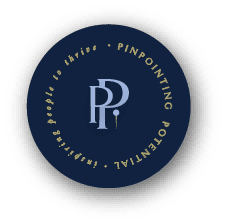Just three years ago in March 2017, when Professor Robert Kelly was being interviewed live on the BBC and his children interrupted the interview, it went viral. Over 40 million people watched the clip on YouTube and he still gets recognised for this single event. Today, the dog walks through your Zoom meeting, your children interrupt your conference call and nobody bats an eyelid.
Everyone is adapting to a new reality and way of doing things. We are trying to work using different platforms and technologies, juggle home-schooling and employment whilst dealing with enormous levels of anxiety, stress and pressure. This pandemic has created so many significant worries, any one of which, under normal circumstances would, be substantial. However, this situation has forced us into an unusual situation that all of these worries are impacting us simultaneously. We are worried about our health and the health of our parents, our grandparents, our friends, our neighbours. We are worried about our livelihoods and our children’s futures. We are worried about the impact that this is going to have on our communities and our planet, now and in the future. We are being forced to make decisions and choices that we have largely been unprepared to make.
However, the incredible result of this is that we are seeing the absolute best in people and in human nature. Overnight we have changed our approach to life, to our people, to our communities and to the universe. We are more present, more empathetic, more authentic, more resilient, more humble, more generous and more remote yet connected together (all emotionally intelligent productive states).
I just listened to a truly inspirational webcast, hosted by EY on “How COVID-19 is defining business purpose”. The panellists included Nigel Higgins (Group Chairman, Barclays Bank), Bernard Looney (CEO BP Plc), Michael Dell (Chairman and CEO Dell Technologies), Carmine Di Sibio (Global Chairman and CEO EY) and Alan Jope (CEO Unilever).
In my opinion, they are all exceptionally authentic, emotionally intelligent and inspirational leaders. They were present, empathetic, genuine, resilient and empowering. They showed the greatest of respect and appreciation for and support of each other and the people within their organisations and the communities in which they live.
What I loved most about this conversation was that it validated a lot of what we, as authentic leaders already know:
Put people first- Always – Look after your people first and ultimately the company, the shareholders and communities will be rewarded
Always be honest and authentic – an example that Bernard Looney gave was that they were deferring pay rises company wide but at the same time proposing to make their largest ever charitable donation to help with the global pandemic. They were open, honest and authentic and asked their employees how they felt about it – people overwhelmingly said yes- this is an amazing example of authentic leadership
Think long term (The infinite game) – it is extremely easy in the panic of “now” to think of today and the short term, understanding that it is difficult, we need to focus whenever and wherever possible on the long term. According to Simon Sinek in his book, The Infinite Game, organisations with leaders who have a finite mindset tend to lag behind in innovation, discretionary effort, morale and ultimately performance. The leaders who embrace an infinite mindset, in stark contrast, build stronger, more innovative, more inspiring organisations. Their people trust one another and their leaders. They have the resilience to thrive in an ever-changing world and ultimately they are the ones who lead the rest of us into the future
Focus on your values, beliefs and principals – Nobody has experience of dealing with and leading organisations through any situation quite like this. Leaders and companies must turn to their values, their principals and their belief systems to steer and guide them through this situation. Have the confidence to follow your principals
Communicate openly and effectively – over communicate and connect with all staff, focusing on purpose
Build trust – with employees, with stakeholders, with customers, with communities. People are vulnerable and need support and encouragement, it is the perfect time to do it
Make a difference – Leaders of stable, well positioned organisations are asking how they can help, what can they do to make a difference to their employees, their customers, their stakeholders and the communities that they operate within
Be Empathetic– reach out, check in on people, be there to support them virtually as they are under intense stress and pressure and desperately need support
Be humble – we are all in this together
Lead – navigate with purpose and hope

